
ReligiosiTea
ReligiosiTea is where sacred storytelling meets critical inquiry—an exploration of how religion, spirituality, and health collide, converge, and co-heal.
Hosted by Adren, a doctoral student in Health Equity Sciences with a Master of Public Health and a background in anthropology, this podcast bridges the gap between lived experience and academic insight. With deep roots in qualitative research and a passion for testimony, Adren invites listeners into the spaces where belief systems meet bodies, where healing is both clinical and cosmic, and where the divine shows up in diagnosis, doubt, and deliverance.
The name ReligiosiTea is a portmanteau of religiosity—a measure of religious participation—and tea, a term from queer and AAVE dialects meaning truth, gossip, and revelation. This isn’t just a show about religion or health—it’s about the stories we whisper, the rituals we survive, and the questions we dare to ask when the stakes are spiritual and embodied.
Episodes vary in format—from interviews with people of diverse faiths and spiritual identities, to solo reflections, to commentary on the politics of faith and wellness. Whether you’re devout, deconstructing, or somewhere in between, ReligiosiTea offers a grounded, generous space for complexity, clarity, and connection.
ReligiosiTea
What the Flock?
Use Left/Right to seek, Home/End to jump to start or end. Hold shift to jump forward or backward.
Spill your ReligiosiTea directly with the show host! Let us know your reactions, stories, and more!
Lucy's faith journey unfolds like many roads less traveled—winding, marked with detours, yet always finding its way back to a divine center. As a Christian attending a Baptist church, she describes herself as "more spiritual than anything," embodying a relationship with God that transcends religious formality.
What makes this conversation remarkable is Lucy's candor about the ebb and flow of faith. "I've had times I've strayed from God, questioned things or felt distant," she shares, "but no matter how far I drift, I always find myself being pulled back." This magnetic return forms the backbone of her spiritual experience—an authentic relationship rather than rigid adherence to tradition.
Lucy's approach to Christianity centers on "living in love" and inclusiveness. Her favorite biblical story—the adulterous woman from John 8—reveals her connection to Jesus's protection of the marginalized and his reminder that none are without sin. This understanding shapes her welcoming perspective: "God loves everybody...black, white, Mexican, gay, transgendered."
The conversation takes a fascinating turn when Lucy discusses her Graves' disease diagnosis. Despite the autoimmune condition affecting her eyes and heart, she never blamed God—a response that surprised even her colleagues. When her condition mysteriously went into remission without medical intervention after losing insurance coverage, Lucy sees divine intervention at work.
Perhaps most compelling is Lucy's blending of traditional Christianity with other spiritual elements—using crystals and sage in her home while contextualizing these practices within her Christian faith. "If I sage my house, I pray to God to protect my house," she explains, finding harmony between seemingly disparate traditions.
For anyone exploring faith, Lucy offers refreshing advice: be yourself, find a denomination that aligns with your values, and "don't judge a church based off of the people...judge it based off of how you feel when you're there." Her testimony presents contemporary faith as something deeply personal yet universally accessible—where imperfection is expected and authentic connection matters most.
Follow me on Instagram and Threads: @ReligiosiTea
You can use the link at the top of the show notes or email me at religiositea@gmail.com to share your stories, thoughts, insights, reactions, and much more! I'm waiting for you to spill your ReligiosiTea!
We're spilling tea on religion and health, where intersections of faith and healing combine. On religiosity, as this podcast discusses religious beliefs, religious experiences, personal testimonies and mental and physical health, some of the content may be uncomfortable or triggering for some listeners. Hello, this is your host, adrianenne, and today I'm speaking with my friend, lucy.
Speaker 2:Hey, my name is Lucy. How are you?
Speaker 1:I'm alright. How are you?
Speaker 2:I'm good excited to be here on your podcast.
Speaker 1:Well, I'm glad that you agreed to participate. Can you tell me a little bit about yourself?
Speaker 2:Yeah, so my name is Lucy. You introduced me. I'm a mother before anything else. That's one of my main focuses in life. My kids are my world, and there's nothing I love more than spending time with them and my family, whether it's watching movies together, playing at the park or just sharing everyday moments. Family is the core of who I am. But beyond that, I am also someone who values self-expression, whether it's through deep conversations, personal growth or even something as simple as doing my makeup, which has always been a little form of creativity and self-care for me. One thing I've learned is that not everyone is willing to grow or see beyond their own perspective. That's one of the things I dislike when people lack emotional intelligence, when they dismiss emotions, avoid accountability or think we all have to fit into a mold. Life isn't a one-size-fits-all and I've never been one to conform just because it's expected. I believe in individuality, in evolving and embracing what makes us unique.
Speaker 1:Awesome. As you know this podcast is centered around religion, spirituality, health. Can you tell me where you fall under any kind of religious category?
Speaker 2:Yeah, so my faith has been a journey. I was raised Christian and currently go to a Baptist church, but I see myself as more spiritual than anything. I've had times in my life where I've strayed from God, where I've questioned things or felt distant, but no matter how far I drift, I always find myself being pulled back, not out of routine or obligation, but because deep down, I know he's always there. My faith isn't just about religion. It's about a connection, a relationship and a constant journey of learning, growing and seeking.
Speaker 1:Can you tell me a little bit about your current religion? You said you're Christian. Can you tell me what that looks like for you?
Speaker 2:Yeah, definitely. So. I am currently Christian and what it looks like for me is just, really just living in love. Uh, that's how I take it. Uh, I try to be accepting and loving of everyone. I do go to church, I do pray and I do try my best to read the Bible. Uh, sometimes I fall short of those things, but I, I do go to church and that's one of the main things I do with my, my spirituality, and it feeds me and that's how I um one of the practices that I engage in the most okay, and can you tell me from your perspective what are kind of the core beliefs around Christianity?
Speaker 2:well, I definitely think, like with Christianity, some of the beliefs is love, uh, inclusiveness, especially more in the new Testament, um and so that those are some of my the belief systems in there and the foundations. Obviously there's rules, like with anything else, but I do feel a little bit in Christianity. You do kind of have that You're not perfect, jesus died for your sins, you know kind of deal. So it does kind of have that you're not perfect, jesus died for your sins, you know kind of deal. So it does kind of alleviate the stress of maybe other roles that you might find in other religions and can you talk a little bit?
Speaker 2:about kind of the morals or codes and values that for me in the Christian faith is love and compassion. Right, that's one of the really big things that we see in Christianity that it talks about love God and love others, honesty and integrity, be truthful and avoid deceit. Humility and selflessness, put others before yourself, serve others with a humble heart, faithfulness and obedience to God, so like entrusting God's plans, staying committed to your faith and values even during hardships, self-control, forgiveness Forgiveness is a big one that is really preached in the Christian faith, and peace and reconciliation.
Speaker 1:Okay, and who are, in your perspective, the major figures of this religion in the theology? So, god Jesus, is there, anybody else?
Speaker 2:In the Christian faith we do talk about other people in the Bible, but the main thing is God and Jesus. But if you are familiar with Christianity, jesus is God and the Holy Spirit, so they're all three in one, the three bodies in one right, and we really more focus on that, like in other religions, like maybe in Catholics even though they are part of Christianity, they value saints and the Virgin Mary, wherein Christianity that's not something that we do there.
Speaker 1:Right. So something that I've heard from Christians in my life and online and in various places is like the direct relationship that you have with Jesus. Can you talk to me about that a little bit and what that looks like for you?
Speaker 2:Yeah, so in the Christian faith it is a lot more about a personal connection with God, your creator, more so than anything. So it does take a lot of like prayer and speaking to God with that with that.
Speaker 1:So can you tell me what that kind of direct connection?
Speaker 2:with Jesus or God feels like for you personally. Yeah, it's definitely comforting. It's a really comforting feeling, it's insightful, it's just a welcoming feeling when I speak with God on my own terms. Obviously I don't hear him speaking back to me in the traditional way that people would speak to each other like you and I would. But I do see like signs and stuff, so it is reassuring of my faith when I do speak with God.
Speaker 1:So can you tell me I know we've talked about this a little bit before, but what is your experience in Christianity with the Holy Ghost or the Holy Spirit?
Speaker 2:Yeah, I mean I personally have had a Holy Spirit moment Not a lot of moments in my life, but there were definitely those moments that left me shaking, shivering and shattering my teeth. For no apparent reason. It actually happened to me at Christian camp as a teenager, where I just felt this overwhelming feeling of all emotions. I can't really explain it to you. It was happiness, sadness, it was just all of them in one and it was a great feeling. Now I do know it could be off-putting to some people when you do go to a place and they get the holy spirit and they're shaking on the floor and all of that stuff, but everyone's experience is unique to them.
Speaker 1:Um, but yeah, I have had encounters with the holy ghost or the holy spirit and do you think that that's something, do you think that's an experience that added to your life or to your faith?
Speaker 2:Oh, definitely, it definitely does add to my faith and my life. It's one of those moments where you kind of realize that there's something bigger at play with everything, and I think that was one of the more fundamental moments for me in my life moments for me in my life.
Speaker 1:So do you have a favorite text or story or scripture from your faith that really resonates?
Speaker 2:with you that you just really love. Oh yeah, definitely. I think my favorite story my entire life was really the story of the adulterous woman, which could be found in John 8, 1 through 11. And this story is when a woman is caught in adultery, they're trying to stone her, trying to kill her, and Jesus just starts writing in the sand. Everyone sins and I think for me, this was a really eye opener because Jesus really stood for the broken people and the outcast and it just really showed the mercy, that he was merciful, and so that is my favorite story. I relate to it the most, probably because I am a woman, but I think it was a really one of those really eye-opening stories for me from the Bible that really solidified wanting to stay in this religion.
Speaker 1:And can you tell me a little bit more about the story? So this woman was caught in adultery. What did she do, or what happened?
Speaker 2:Well, they were going to stone her because she was caught in adultery. Those type of things were punishable by like stoning, and there was different other things that they could do to you, but that was what was happening to her. So people were about to stone her and Jesus started writing their sins in the sand and he said he who is without sin cast the first stone. But as Jesus was writing everyone's sins on the floor, you would know that not everyone is with sin. There's no perfect person. So how could we judge but still have those convictions ourselves of other things?
Speaker 1:So we know a little bit now, more about your experiences of faith where you stand, your favorite story, some of your perceptions around it. How do you feel overall with your general well-being when you're participating in your faith practices?
Speaker 2:Well, I have definitely seen a shift as to when I am practicing with my faith and when I'm kind of straying away. I have definitely noticed a huge change in my well-being overall. So spiritual takes a hit, then there goes mental, then there goes physical. You know, I do notice that if I'm not practicing my faith or I'm not sticking to it, I'll get bouts of depression, anxiety, and then those things start seeping into my physical right Bags, under my eyes, tired, fatigue.
Speaker 1:So it does play a major role in my overall well-being, and can you tell me how you came to be Christian or to identify more with Christianity than any other faith?
Speaker 2:I'll be completely honest. I was born into a family that was Christian. Now that doesn't mean that they've always practiced Like. My mom was super Christian. When I was younger, my dad passed away. When I was four. He was the one who instilled the Christian faith in our family. I had strayed away from him, but I just kind of always just find myself being shepherded back to God, Kind of like that lost little sheep and he kind of get back over here, girl, and brought you back to the flock.
Speaker 2:Yeah, with the flock, with the flock, but I definitely think it was like my personal experiences and actually, so one of the things that was really. My dad died when I was four, and I know you've heard this story a lot of times, uh, but this really made me spiral in my faith. Um, because when my dad died, I still saw him, and I know that might sound crazy and outrageous to some people, but I there is no denying what I saw and outrageous to some people, but there is no denying what I saw. My dad was still around, his spirit, you know, and I remember we were moving out of our house my mom he had just passed away. She was heartbroken, we were packing up, leaving I guess she didn't want to be no longer in that place and my dad was lingering around and I think it had finally hit him that he was gone, right, I remember walking into my playroom, which was at the back of the house, and there was a huge window in there where light shines in, and I remember seeing his spirit.
Speaker 2:I know that sounds crazy, but he was standing there and he looked at me and he told me in Spanish cuida, a su mama, take care of your mom, and then he looked into the window. The window got super bright and he disappeared and I've never seen him again. I was four years old, so a lot of hispanic people will say, well, you were able to see that because you're young, and when you're young you're closer to the spiritual realm. Uh, so that really kind of catapulted like when people question my faith, I'm like I know that there's something greater than this.
Speaker 1:I saw him go into um the light so it sounds like you've had a lot of really powerful experiences from a young age um with your dad. Can you tell me more about what your faith journey has looked like throughout the rest of your life?
Speaker 2:yeah, definitely so. I. I, like I said I stray a lot, so I I've dabbled. I haven't dabbled in a lot of different religions, but one of the things that probably really bad as a Christian, I have like dabbled a little bit in witchcraft as a little kid and then again as a teenager and then again tried again as a young adult and I guess that really just solidified it more for me, because when I did do those things, strange things started happening to me, um, and it just led me back to my original faith, which was Christianity.
Speaker 2:Um, even at a young age, when my family kind of gave up on going to church and practicing in the normal way that we were used to, I, still at a young age, seeked out going to church. So, like I was making calls to the pastor can you pick me up on Sunday? I want to be at church. And I'm talking about, like at a really young age, like between the ages of eight to 12, I initiated those conversations with religious leaders, like pastors, to get me to church. Then I stayed again as an adult adult and then I find myself back in that place of comfort.
Speaker 1:But I have dabbled in a few different things so can you tell me about the times when you were exploring other options a little bit, maybe about why you were exploring those options or really how you were feeling or any particular experiences you had?
Speaker 2:yeah. So I mean I hate to say the word witchcraft because that just sounds so evil and bad. I definitely wasn't using anything in a malicious way. I guess what really drawed me to it the curiosity. It was the curiosity, but I like the idea of having intentions behind the things that we're doing to set things into motion, and I guess that's why I dabbled a little bit in it to to really see it. There are things that I I held on to from there. Like I do have crystals in my house, I do enjoy having crystals in my house. I do sage my house, I do use Palo Santo, but still within I still use my Christian faith. So like, if I sage my house, I pray to God to protect my house. If I Palo Santo my house, I pray to God. If I have crystals in my house, it's just for protection. I don't use them in a malicious, intentful manner. It's more for protection or whatever those crystals are used for. But I did try out of mainly curiosity, but always got drawn back to my original Christian faith.
Speaker 1:And do you have a favorite crystal?
Speaker 2:Right now it's the Smoky Quartz, but it's not because of any properties that it has, it's because it's beautiful. Oh, that's fair, yeah, I do like tourmaline also, but that one is more for protection. I don't think it's very beautiful, so it's more for, like, the protection of your home, the negative, casting away negative energies. Um, but yeah, I, I do like smoky, but mainly for aesthetics.
Speaker 1:And do you think using crystals takes away from, adds to or has no effect on your belief as a Christian?
Speaker 2:So some people will say it takes away from my belief as a Christian, but I would politely disagree with that. There is many instances in the Bible where crystals were used to create armors of protection. Hello, I'm protecting my house. They use it to build sacred places like temples and things like that to protect. It does mention crystals a little bit in the Bible in the sense that God made them beautiful for us, but it does warn the dark things like sorcery or the dark magics like, not to use it for those type of things, um which I haven't never personally done that, so I don't see anything wrong with me having one, however you want to answer, but have you had any really great or really terrible experiences with your faith?
Speaker 2:I think I have had both right um. So I remember one time as a little kid going to an event and like the guy that was there was being like so rude and kind of mean. That kind of made me like oh, they're being judgmental, you know. But then I remember that we're all human and we're all going to make mistakes and so that's a beautiful thing about it is that God identifies that, that we're not perfect, nobody's perfect and we don't expect perfection from anybody. So I think that's one of the beautiful things. That kind of tied it back in like okay, that was a really horrible moment. He treated us really unfairly. But maybe that's not a testament of the Christian faith but more of a testament of humanity and within any religion that you go into.
Speaker 1:So can you tell me how your religious and spiritual practices have influenced your mental health?
Speaker 2:yeah, definitely so, with my christian and religious practices. Um, it really helps my mental health in many ways. So it depends on what I'm doing, but even something as simple as going to church and listening to praise and worship it really does uplift my spirits and makes me, sets a tone for a positive week, for the work week right. It helps me kind of align myself with, like my belief system, love, all of those things into one. It also has helped my mental health in prayer. So sometimes when I'm feeling really vulnerable, really alone, prayer really does help me kind of gather myself and move forward and see a light at the end of the tunnel, whatever I'm going through, right, and so it really has played a major part in my mental health. I noticed that when I don't do those things, my mental health takes a backseat, you know. So I do definitely think that it does play a huge part in my mental well-being.
Speaker 1:For the positive, and can you tell me how you would define or describe spiritual health?
Speaker 2:this one's a really tough one for me, because it's really hard to describe the spiritual, because it's it's not something you can see, it's more of a feeling. I guess deep within you you know what I mean. Uh, so I guess the way you could define it would be just like an essence around you or within you, you know and how would you describe or define well-being?
Speaker 2:well-being. For me to to describe it would be like overall right, it doesn't have to just be physical, it could be mentally, emotionally. So it just means like being in a in a good place while being like you're healthy, mentally, spiritually, emotionally, physically so they all kind of blend into one and how do you feel that your religious and spiritual practices contribute to your overall well-being?
Speaker 2:the way that they contribute to it is just doing things in a positive manner. It creates, like this positive foundation, uh, for your life, for your everyday actions, movements, you know.
Speaker 1:So that I think it's just a foundation for it is there any particular practice from your, both religious and spiritual, and I'm saying both because Christian crystals that you feel really help you mentally or emotionally when you're going through a tough spot?
Speaker 2:Definitely. For me, prayer definitely does help. It's for me you meditate, so for you, like, when you meditate you're looking're looking inward, and then when I pray I look outward, but it's also reflection goes back inward. So it overall helps me. Uh, with my crystals it does, does just help me feel more safe, just to know that they have those properties, um, and that helps me overall feel safe in my house. But for me it's more the prayer, like praying, helps me emotionally and mentally take on everyday life struggles.
Speaker 1:And can you tell me what prayer looks like for you, like, how do you go about prayer?
Speaker 2:All right? Well, I'm definitely not. Don't call me to pray at a, at a ceremony or anything. I pray more informally. I'm not always on my hands and knees on the floor praying to God. Sometimes I could be praying in the shower like dear God, I'm having a really rough day today. Help me guide me through this day, you know. Or even something as simple as washing the dishes. Like I may look like I'm just washing the dishes, but I'm also very deeply in a one-on-one conversation with God during that time. So my prayer, the way I pray maybe a lot of people would be like oh my God, you're not getting on your hands and knees, but for me it's more of a personal relationship with God. Hands and knees, but for me it's more of a personal relationship with God. And so for me to make it, more personal.
Speaker 1:It has to be informal sometimes, so for you, prayer is just kind of like maintaining or keeping up the personal relationship that you have with God correct.
Speaker 2:So like I don't only just pray when I'm having a hard time. Sometimes I look around my house and I see my kids playing. They're healthy, we have a roof over our head, and there could be simple moments where I'm having a hard time. Sometimes I look around my house and I see my kids playing. They're healthy, we have a roof over our head, and there could be simple moments where I'm like you know what, god, thank you so much for this? Like we don't understand the wealth that is health right. So I always take those moments and like we accomplished this. Thank you for always sticking by me. I should have trusted your plan, you know, kind of thing.
Speaker 1:So for always sticking by me. I should have trust your plan, you know um kind of thing. So it sounds like for you, prayer also includes expressing the gratitude that you have. Correct, okay, and can you tell me a little bit more about the specific feelings you have when you're praying and how it comes back into your mental health?
Speaker 2:yeah, so sometimes I'm not praying. When I am praying and it's like a sad moment, it does help alleviate that kind of the sadness or if I feel doomed, sometimes you get that feeling of doom, it alleviates it, it takes it away from me. But it also sets the tone for a positive mental environment, right, like you're kind of having this inner moment also, like, even though I'm building a relationship with God, it's also in many ways building a relationship with myself, you know, and it really helps for me to make an identification of who I am during those moments and what's important to me. So that's how prayer helps my well-being. It makes me feel happy. If I'm feeling emotional, it makes me feel free to let those emotions out, right, like sometimes, when we have to be strong, we bottle it up inside and sometimes that's really detrimental to your overall well-being. So being able to have that outlet of me crying and releasing all that stress, releasing any anger, it really helps me have a more positive life and a positive outlook on life and how I see the world.
Speaker 1:So what do you, or how do you think that prayer might contribute back to your physical health?
Speaker 2:well, I definitely think that physical health, emotional health, spiritual health is a balancing act, right it's. If one of them takes a hit, you're gonna see effects of it in other places. So obviously, if I'm using prayer to release stress or get those positive feelings back, you start having those positive what's inside you begins to seep out of you. So I'll see like an increase in even something as simple as an increase in energy you know what I mean or a euphoric feeling, a happy feeling, and those things seep out of us in our health. A happy feeling and those things seep out in us in our health. So if I'm stressed, obviously, even though my stress is more emotionally right, it does manifest in physical forms like high blood pressure or I have graves disease. You know this. So if I'm super stressed, my graves disease could get out of remission and then I'm back with this thing that's attacking me.
Speaker 1:So I do believe that they go hand in hand, like if your emotional health is good, then it does seep out into your physical Right, I want to get into your Graves' disease a little bit, but first I want to ask you how you think prayer impacts your spiritual health. However that looks like for you, that kind of undefined feeling of what spiritual health? Is yeah, it's really hard to define spiritual health, however that looks like for you, that kind of undefined feeling of what spiritual health is.
Speaker 2:Yeah, it's really hard to define spiritual health. I don't really know how to explain how prayer helps it. It's like another worldly feeling, I guess, like I would say like warm fuzzies. You get the warm fuzzies in your body. I don't think there's really a way to define it.
Speaker 1:Okay, that's fair. So, talking about your Graves disease, how did you feel when you received that diagnosis?
Speaker 2:I actually didn't feel anything. It's funny that you brought this up because when I found out I had Graves disease. I don't know if you know this, but it's an autoimmune disorder that attacks your body, attacks your body. One of the really cool things about Graves' disease is you will get super skinny if it's not checked, you know. But it's bad because my Graves' disease was actually attacking my eyes and my heart.
Speaker 2:But I never once had any resentment towards God for having Graves' disease. I never even thought to question God in those feelings with the Graves' disease. It wasn't until someone asked me at work a friend that I went to high school with, that I worked with at the time, was all like what's been going on with you? And I told him that I had been diagnosed with Graves' disease and he was like, are you mad at God? And I was so taken aback because I had never even thought to blame God. But you know, I also know that this is not. This world isn't of God right now. So I I expect to have the worldly struggles. Um, so I'd never blamed God at all. If anything, I think maybe that was what. So that was actually a miracle in itself.
Speaker 2:So you know me for many years and my Graves disease went on remission on its own, without medication. Years. And my Graves disease went on remission on its own, without medication, without any, any procedures. I didn't get the thyroidectomy, I didn't get the radiation treatment. It just went away on its own. And I really think that. Maybe some people might call me crazy, but I think that because I had so much faith in God and I never placed that blame on him, it was taken away from me. It could always come back. But I've been in remission for what? Already four years and so after three years the likelihood of it coming back significantly drops. So to me it was really a divine intervention moment and just more solidified my relationship with God.
Speaker 1:And do you think having this relationship with God or engaging in your faith particularly helped with your Graves' disease? You mentioned stress and how stress is related, so do you think like maintaining this kind of well-being through your faith practices helped keep the Graves' disease in remission and actually put it in remission?
Speaker 2:I'm not sure what put it in remission, to be honest with you, but I mean it would make sense Graves' disease in remission and actually put it in remission.
Speaker 2:I'm not sure what put it in remission, to be honest with you, but I mean it would make sense. Graves' disease is something that could be triggered from stress, the flight or fight response in your body, and then it just doesn't turn off, that switch right. You're like in this fight mode and then it's ending up fighting your body. I definitely think, looking inward and speaking to God and having those heart to heart moments where I'm like I don't want to die, I want to be here for my children. You know what I mean, please. You know those type of moments, whether it be of divine intervention or just that positive again seeping out of my spiritual, into my emotional, into my physical being because of the lack of stress, because I was releasing the stress, talking to God, maybe that could have done it. Um, I'm not sure why I went into remission without any medical interventions and why did you not seek medical interventions?
Speaker 1:was it a cost thing, a fear thing, a faith thing?
Speaker 2:definitely a cost thing not a faith thing, I would have definitely jumped to the opera. I was on medication for a little bit, but then, after I had my daughter, um, that insurance got stripped for me and I just couldn't afford it and I would just make my appointments as I could, but I couldn't afford the medication anymore. It was like a few months, like about six, six to eight months, where I wasn't medicated and then I went to get my blood work done and they were like oh well, your numbers are normal. So I mean I was happy.
Speaker 1:Yeah, so to clarify, you also do believe in modern medicine, definitely Okay.
Speaker 2:So let's, let's, let's stop this narrative that because I'm Christian, I don't have rational thinking or I'm not logical.
Speaker 2:Right you already know where I stand, in that I believe in God. I believe that everything is intertwined, including science, which may not be a popular belief, but I do. I believe that God put people here on this earth. We prayed for sicknesses to be healed, and he gave us people who could heal those sicknesses, you know. So I definitely utilize them, as God's creation was put here, so I definitely utilized them as God's creation was put here Awesome.
Speaker 1:Thank you for sharing that. I know that definitely was a difficult time and I'm happy that you've been in permission for so long.
Speaker 2:Yeah.
Speaker 1:So kind of going back to prayer, did you pray a lot during the time that you had Graves' disease?
Speaker 2:So, like I said, I do pray a lot, not in the formal way of being on my hands and knees. I have talks with him while I'm driving, so I'm constantly in this little conversation with God. He's like my therapist, sky Daddy. Sky Daddy has entered the chat, but yeah, I wasn't toxic to him. I wouldn't say more or less than I am now. I always try to say something in the morning to start my day like thank you for opening my eyes, and so I do think those things play into having that positive outcome.
Speaker 2:you know, Mm-hmm.
Speaker 1:So for anyone who would want to engage, like, specifically in prayer maybe they're Christian or seeking some kind of faith, even if it's not, even, maybe with God, just prayer to whatever they believe in. Do you have any? Advice for how they might go about that.
Speaker 2:Well, so I I mean, just be yourself and you know. If there's omniscient, omniscient presences around, there's no point in faking anything. Just be yourself when, whenever you go into prayer, you know to whomever that may be? Um, because if it is omniscience, he's who you truly are anyways. So for me there isn't really no rules. Um, I guess, say amen after. I don't say amen all the time after, um, because that's a personal relationship, right, that you created, um, well, that I created with God.
Speaker 1:So do you have any advice for anyone, or any strategies or anything that you might want to share for someone who is seeking out particularly engaging in Christianity?
Speaker 2:Well, definitely, just do what feels right for you. Obviously, do your research. There is going to be rules. There's rules with everything. I think what I like about christianity is that god already, jesus already, died for your sins, so technically they're already forgiven. You know what I mean. So that is a little bit of a weight off of your shoulders, right, um? But also understand that when you do seek this religion, you don't have to be perfect. Okay, I actually go to a church where, um, they're probably crackheads in there to be honest, which I love, because that's who Jesus would have been talking to here on on earth.
Speaker 2:Um, maybe just really remember that it's about your personal relationship with God and not really worry about what others have to say about you, and know that you don't have to be perfect to practice Christianity or to pray or to go to church. Okay, god loves all of us, as it says in the Bible.
Speaker 2:It doesn't matter if you're young, old, black, white, mexican, gay, transgendered, and the Bible strictly says God loves everybody, and so just remember that and never take what other people say or other people's judgments or other people's comments too personally, because at the end of the day, we all do fall short of the glory of God, including Christian people. So we're not perfect, and you don't have to be either.
Speaker 1:Awesome. Do you have any words of wisdom, something that you've learned from your faith that can benefit others?
Speaker 2:Yeah, don't worry about what everyone else is doing. Just worry about yourself, and you will. You will find the answers that you need.
Speaker 1:And my last question for you is do you have any cautionary tales or anything that you think people should be aware of, a little critical thinking about as they try to enter into Christianity or prayer or any of these kinds of practices?
Speaker 2:Well, there is a lot of different dominations, so just maybe find one that more aligns with what you're seeking in life. But again, I think mainly the cautionary tale is, you are going to come across those people who are super judgmental, super hyper, fixated on all of your wrongs, and that's just something that does come with any faith. Um. So just remember that and just move forward with yourself, and and don't judge a church based off of the people. Um, judge it based off of how you feel when you're there okay, well, thank you so much for being on my podcast.
Speaker 1:I really appreciate you. I hope the listeners appreciate you, yeah.
Speaker 2:Well, I was really excited to be a part of the religiosity. I actually am drinking from a teacup right now, so that's pretty awesome, but thank you for having me.
Speaker 1:And that's the religiosity. Thank you for having me and that's the religiosity. Thank you for listening. We hope to keep bringing more stories like this and others and branch out into other religious faiths, denominations, practices, as the podcast continues. That being said, be happy, be healthy, be well and thanks.
Podcasts we love
Check out these other fine podcasts recommended by us, not an algorithm.
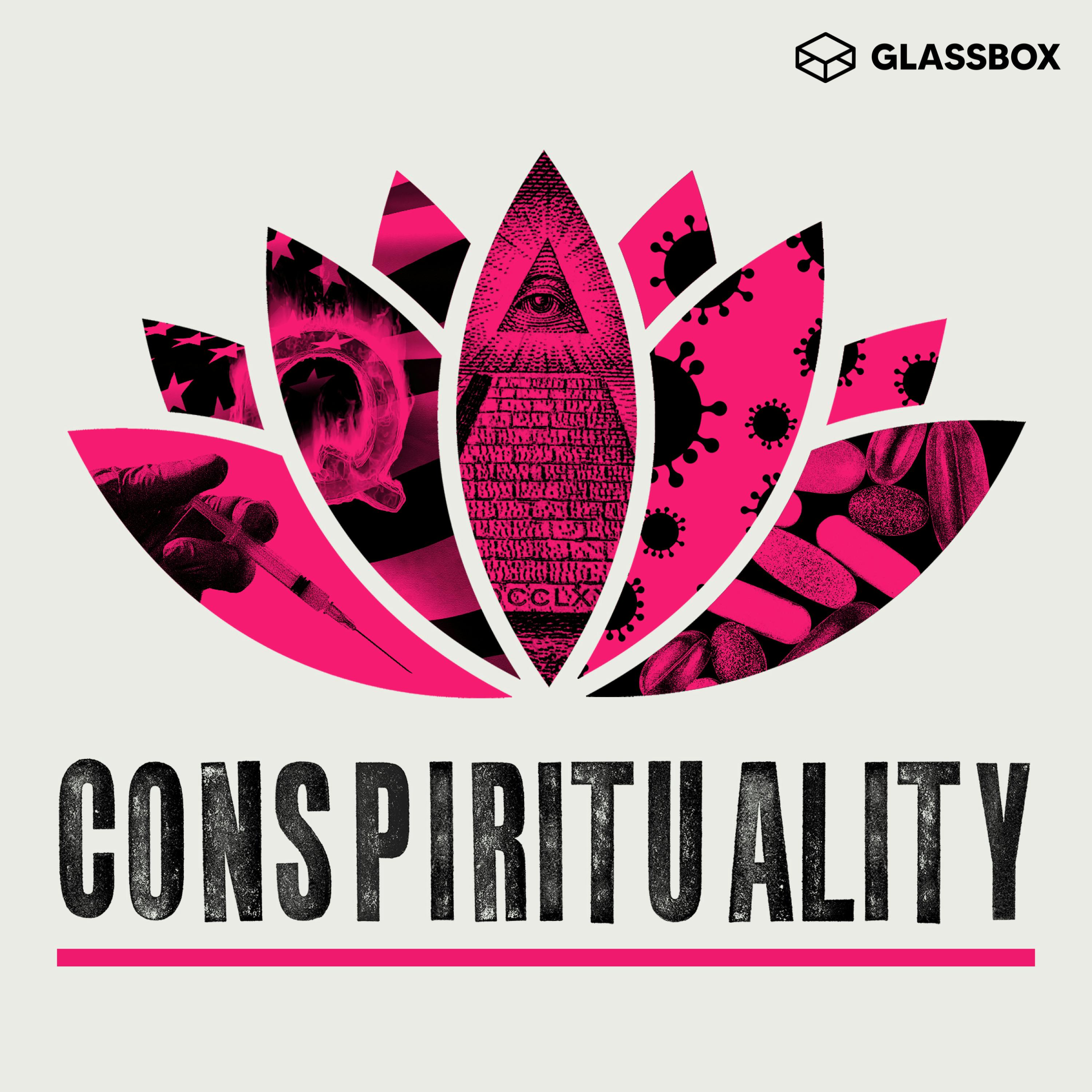
Conspirituality
Derek Beres, Matthew Remski, Julian Walker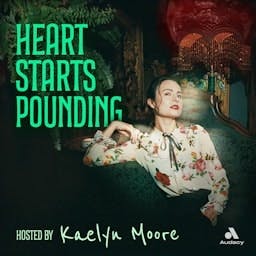
Heart Starts Pounding: Horrors, Hauntings and Mysteries
Heart Starts Pounding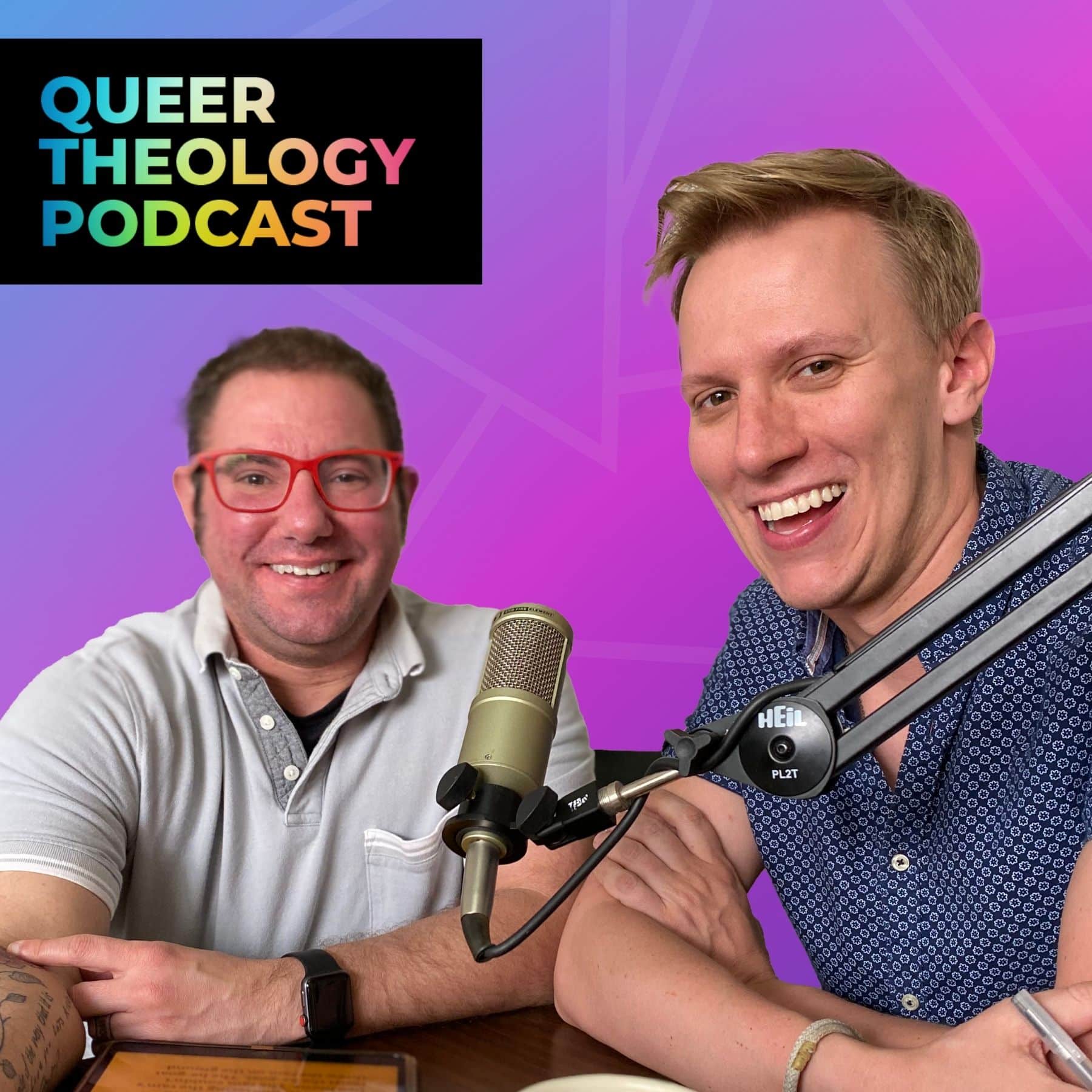
Queer Theology
Queer Theology / Brian G. Murphy & Shannon T.L. Kearns
Throughline
NPR
Code Switch
NPR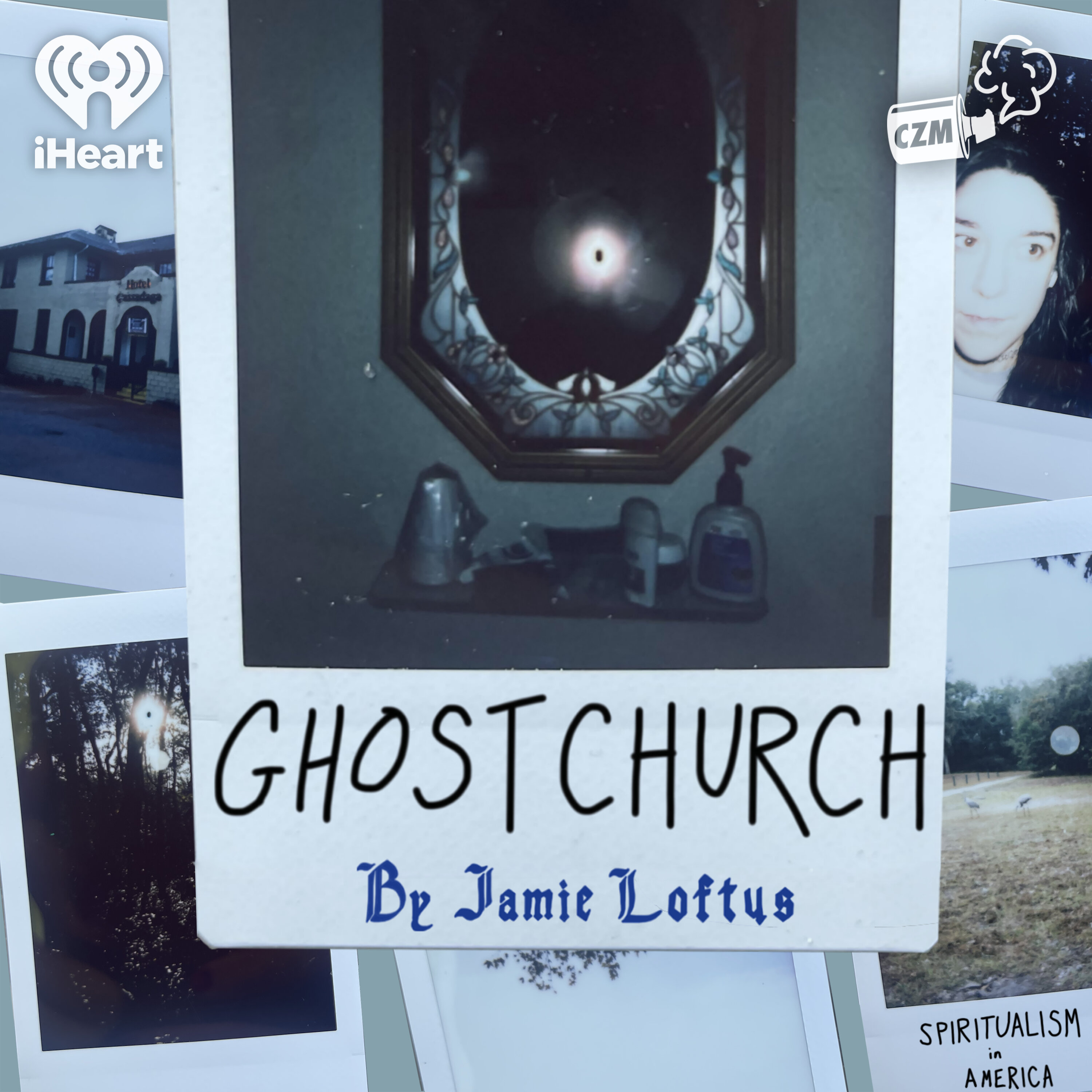
Ghost Church by Jamie Loftus
Cool Zone Media and iHeartPodcasts
Trade Offs
Fidelity International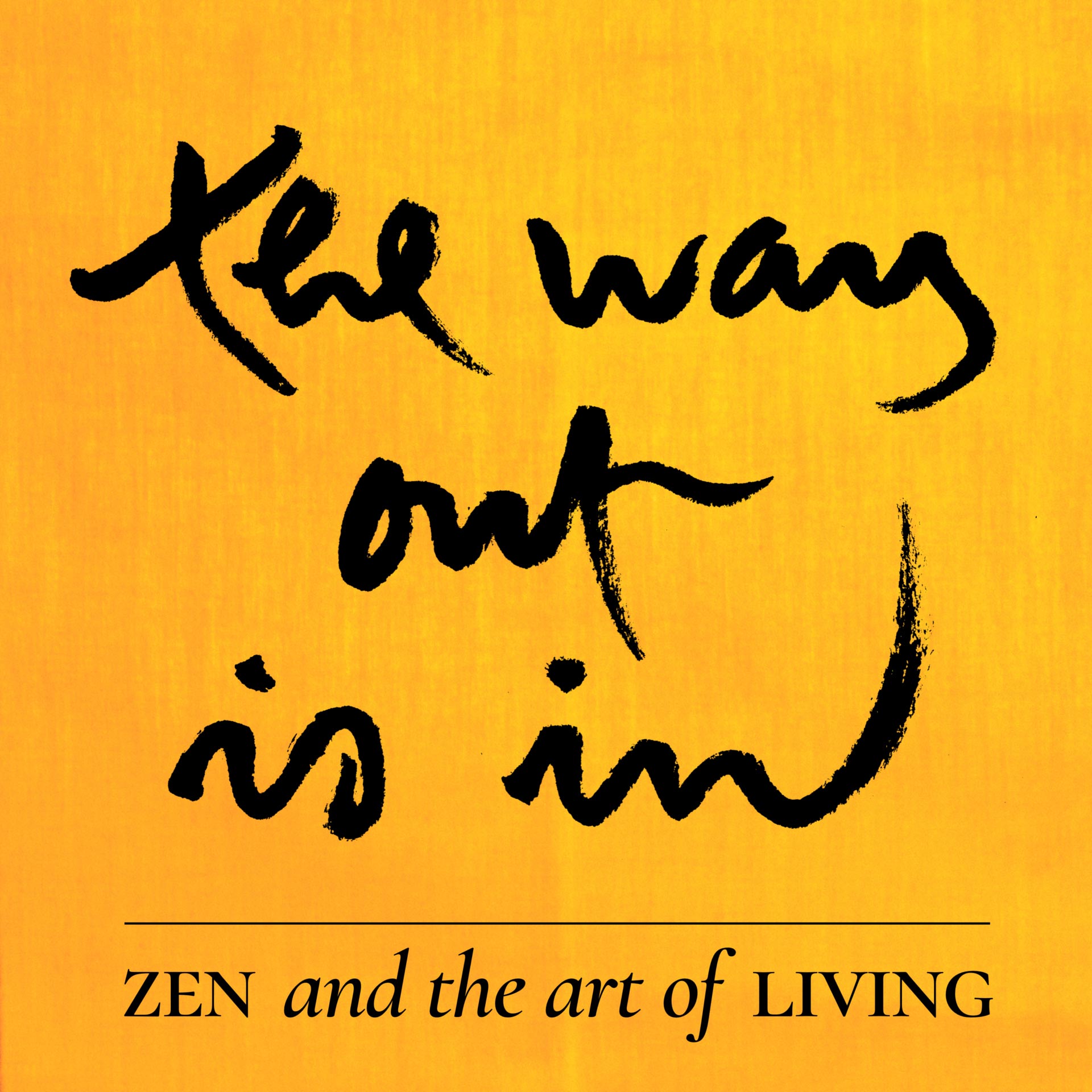
The Way Out Is In
Plum Village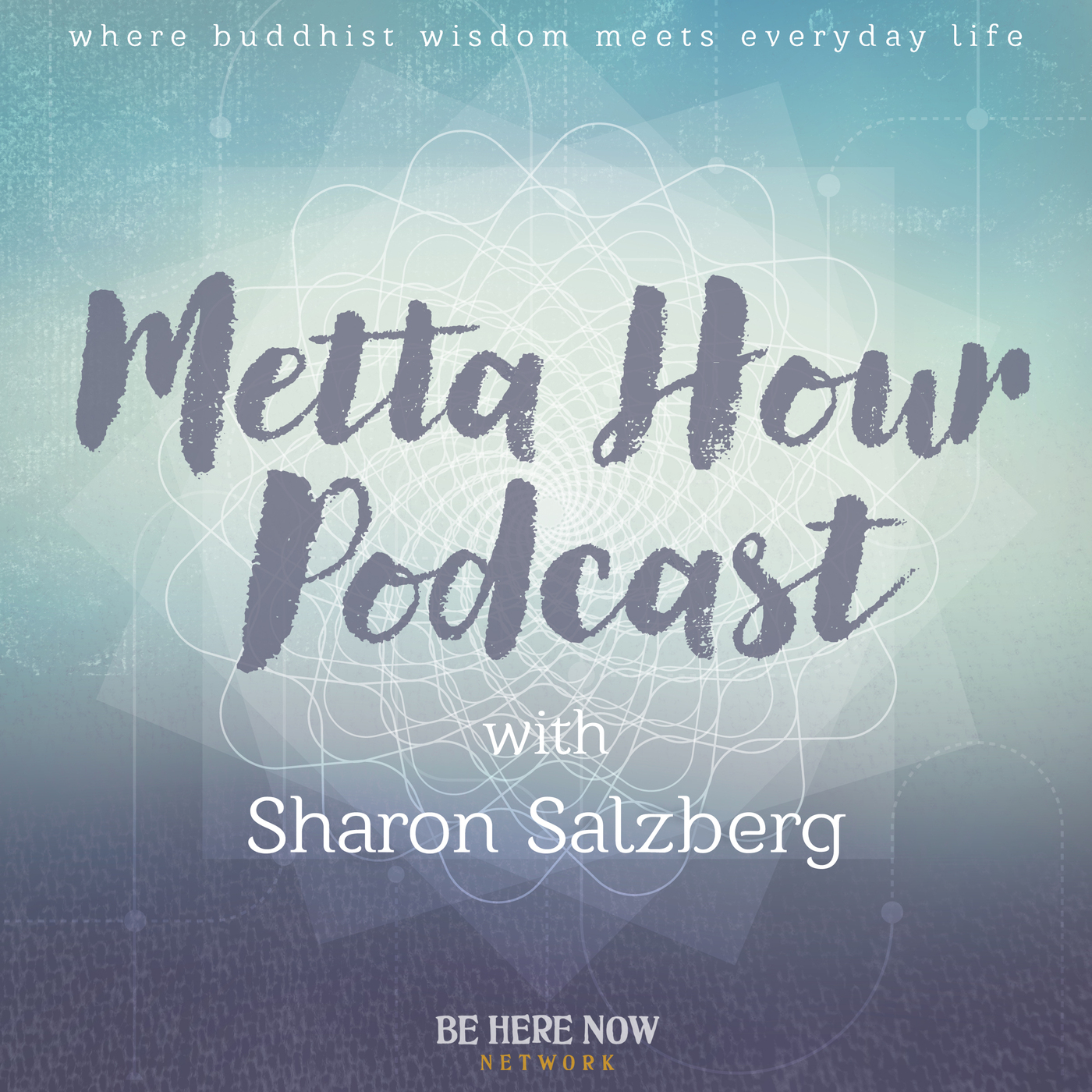
Metta Hour with Sharon Salzberg
Be Here Now Network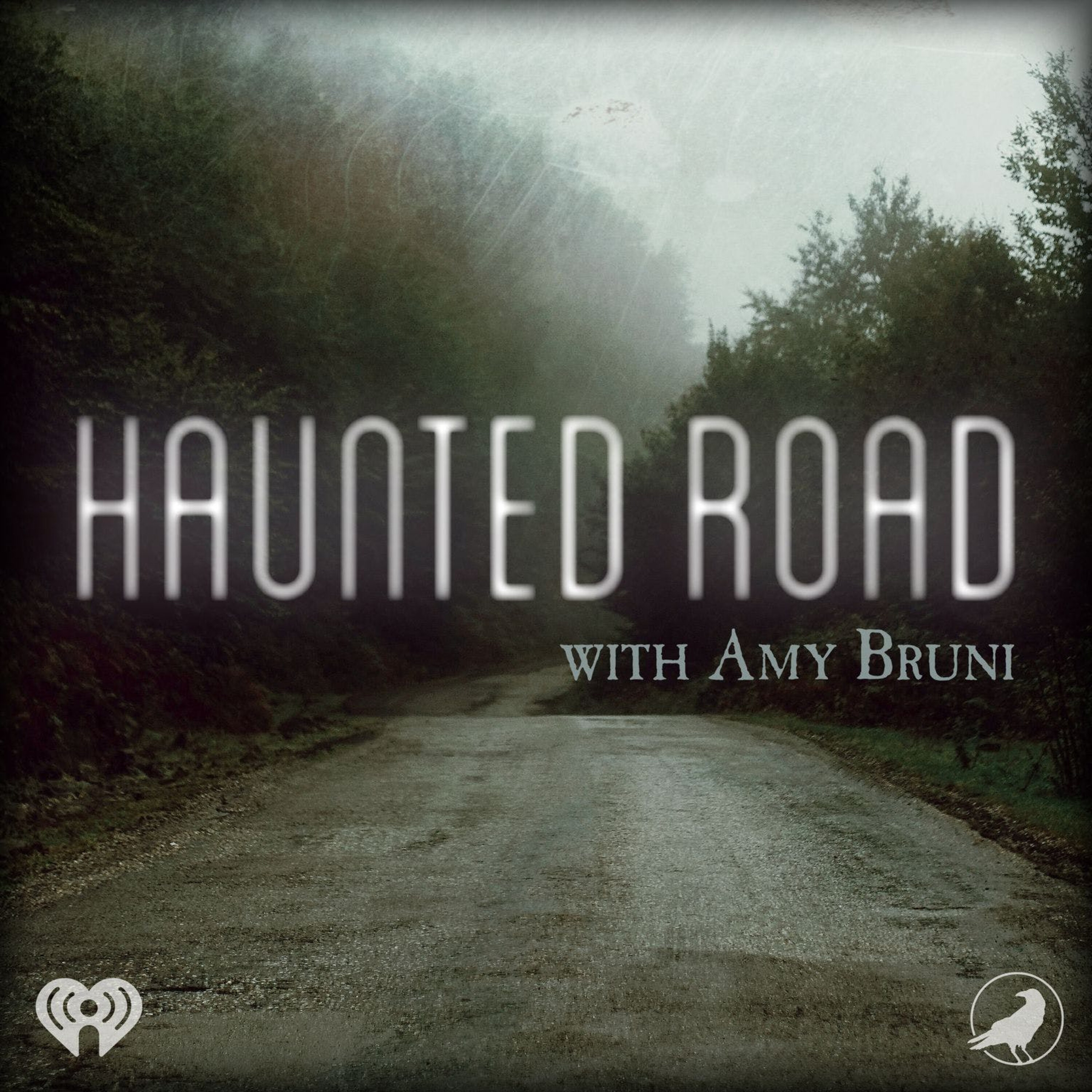
Haunted Road
iHeartPodcasts and Grim & Mild
